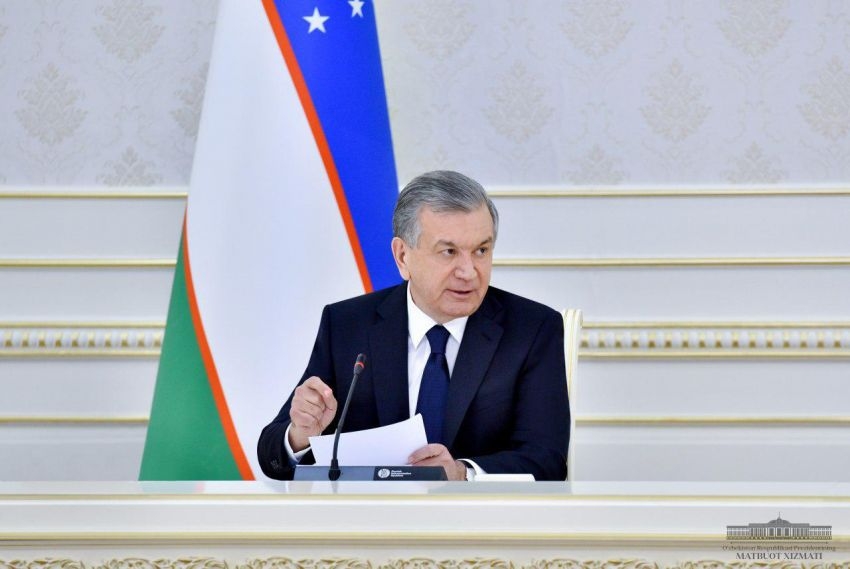Issue 1006 – 16.11.202116.11.2021
President of Uzbekistan contributes to the promotion and expansion of cooperation between Turkic states
President of the Republic of Uzbekistan Shavkat Mirziyoyev, in his speech at the VIII Summit of the heads of Turkic states, came up with an initiative to join efforts through the creation of a platform for experts and IT specialists to exchange experience and transfer innovations, including in the construction of “smart cities”.
In this regard, it was proposed to hold a conference in Uzbekistan in 2022 aimed at expanding scientific and technical cooperation between the member states.
The relevance of such an initiative is due to the fact that at the present stage, the “digitalization” of economic processes and the introduction of “smart” technologies are becoming a key condition for the development of any state. In this regard, many countries around the world are paying increasing attention to the creation of “smart” cities and the use of new production technologies based on robotics and artificial intelligence. First of all, such solutions are becoming integral parts of the urban infrastructure, where the majority of the world’s population lives today.
According to UN estimates, by 2050, 67% of the world’s population will live in cities. Already, some of the world’s megacities are overpopulated and city authorities do not always cope with the maintenance of public utilities and transport infrastructure.
There is also an increase in the urban population in Uzbekistan. So, according to the State Statistics Committee, the share of the urban population of the country has been continuously growing throughout the years of independence and as of September 2021 amounted to 50.7% or 17.7 million people of the total population of 35 million people. According to forecasts, by 2030 the level of urbanization in the country will be about 60%.
In this regard, in order to adapt to changes and new trends, solve urgent problems of citizens, improve social infrastructure and develop regions based on world experience in the construction of modern urban infrastructure, in accordance with the Resolution of the Cabinet of Ministers of the Republic of Uzbekistan No. 48 from 18 January 2019, Uzbekistan is implementing the “Smart City” technology introduction concept.
More than 1,000 smart cities are currently operating or under construction around the world, according to a report prepared by IDC International Data Corporation.
Within the framework of this Concept, the development of all aspects of urban infrastructure, spheres of life of the population is envisaged. So the development of “smart” transport envisages the emergence of new transport services and modes of transport, various applications for calculating the optimal path. Smart education will use educational online platforms and massive open online courses, visualization, and remote access technologies. Within the framework of smart medicine, a centralized system with an automated cycle of information support for the provision of medical services to the population will be established.
The concept also stipulates the development of the energy system, water supply, housing, and communal services and construction. Improving the management system within the framework of the smart administration and smart village programs will allow introducing advanced technologies into the existing infrastructure in order to improve the quality of life, ensure comfort and safety, as well as optimize the costs of the city and residents.
The creation within the Organization of the Turkic States of a platform for cooperation in the field of e-government and electronic services to improve the quality of the public administration system and promote intra-regional digital commerce and trade will directly contribute to the introduction of ICT in key industries and areas of activity of the Turkic countries.
In this regard, the holding of an expert conference in Uzbekistan in 2022 will be the first practical step aimed at expanding scientific and technical cooperation between our countries, will emphasize the importance of multilateral cooperation in the context of the current crises in healthcare, the socio-economic sphere and in the field of human rights, provoked by the coronavirus pandemic.







